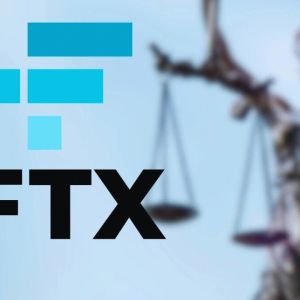A Chinese customer of FTX has filed a formal objection in the US Bankruptcy Court for the District of Delaware against the bankrupt exchange’s proposed reorganization plan. In the filing, they alleged discrimination against creditors in “Restricted Jurisdictions.” The creditor, Weiwei Ji, argues that the current payout proposal unfairly blocks users based in China and other regions from receiving distributions despite holding the same legal rights as other FTX creditors. He claims FTX’s approach violates Section 1129(b)(1) of the US Bankruptcy Code by allowing “unfair discrimination” between classes of similarly situated creditors. According to the document, the FTX estate has not provided any statutory authority or factual basis to justify excluding claimants based solely on geography. The filing states that the plan “fails to satisfy the requirements of equal treatment” and lacks any case law supporting the exclusion of lawful customer claims based on residence or citizenship. The creditor also said he is representing nearly 300 Chinese people who are also FTX creditors. They further contend that such exclusions contradict the equitable treatment principle typically applied in cross-border bankruptcies and could set a dangerous precedent for future international insolvency cases. The creditor asks the court to amend the current plan to eliminate jurisdiction-based discrimination or reject it outright. FTX seeks to block creditors in certain regions from payments The lawsuit is in reaction to the latest FTX restructuring proposal , which includes a clause that could stop users in several countries, including China and Russia, from receiving payouts. The language appears in a section of the draft plan describing “Restricted Jurisdictions,” a term used to identify regions where the company says it was not permitted to operate legally. Under the current version of the plan, users in those jurisdictions, even if they submitted valid claims, may be excluded from distributions. The clause does not list all affected countries by name, but filings and legal commentary confirm that China, Russia, and others are among those targeted for exclusion. The estate argues that compliance with local laws prevents it from releasing funds to users in areas where the platform may have violated national regulations. Critics say the clause goes too far by punishing users solely based on where they live, not based on any actual wrongdoing. In the objection filed this week, a Chinese creditor pushed back strongly against the proposal. The creditor said the plan offers no legal basis under US bankruptcy law to withhold payments due to geography. The upcoming confirmation hearing in Delaware will decide whether the clause stays or is removed. Implications for cross-border crypto bankruptcies could be significant The objection from the Chinese creditor has highlighted a bigger issue that may have far-reaching impacts beyond this case. If the court supports the plan to block payouts based on jurisdiction, it could shift how cross-border crypto bankruptcies are handled. Crypto platforms often serve users from dozens of countries. When they collapse, it’s rarely clear which legal system takes priority or how to apply it. In this case, the court is being asked to decide whether geography alone is enough to disqualify a user from recovering funds. Several observers believe the ruling could set a tone for similar disputes unfolding. If one jurisdiction’s laws allow a company to avoid paying entire groups of creditors, others may follow. That could have consequences for users in regions with unclear crypto laws. For FTX, a decision favoring the objection could force a revision of the plan and delay distribution . For the court, it tests how far US bankruptcy protections extend in a digital market that doesn’t recognize borders. Cryptopolitan Academy: Want to grow your money in 2025? Learn how to do it with DeFi in our upcoming webclass. Save Your Spot
















